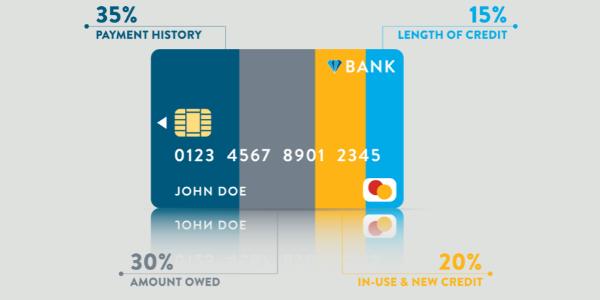
Investment properties can be a great way to earn passive income while someone else (or a bunch of other people) pays your monthly mortgage. Home-share platforms like Airbnb, Vrbo, and other vacation rental websites have made it even easier for those who want to market their investment properties as short-term rentals.

Though you have to know your market and research before investing in short-term rental properties, these can be very lucrative in the right markets. Those include travel destinations where vacation rentals thrive and even locations that experience a lot of business travel, such as conference-heavy cities or markets with dominant industries like healthcare.
Fantasizing about purchasing oceanfront vacation rentals or a home near a large medical R&D campus can be fun, but making this happen requires a little knowledge. Thankfully, it’s nothing you, your real estate agent, and a trusted loan officer can’t handle.
We know you’re already itching to look at nautical décor, but first take a look at these tips.
Definition of a Short-Term Rental Property
Before we get into the nitty-gritty, let’s ensure that we’re all on the same page regarding what defines a short-term rental property. A short-term rental property is one you purchase with the intent of renting it out to multiple people for multiple stays, the lengths of which may vary from a few days to a few months. (Of course, you must check with your city and HOA to understand the rules regarding short-term rentals in your desired area.)
You also have to consider what type of dwelling you want to purchase when investing in short-term rentals. These can be anything from single-family homes to condos, townhomes, apartments, and more. If you look on Airbnb, you’ll notice that people also rent out RVs, teepees, and even chuckwagons as vacation rentals, but for our purposes—and in terms of financing—we’ll be referring to the previously listed dwellings.
The other thing to remember when buying short-term rentals is that they’re often confused with second homes. While you can buy a second house for your family to use, you can only rent that property out for two weeks or less per year. The type of financing you choose will dictate the function of the property (as will local rules and regulations), so you want to be clear that your intention is to invest in short-term rentals.
Here are some specifics you’ll want to know when buying short-term rentals.
1. Specialized Insurance Coverage
Many people are unaware that standard homeowner’s insurance may not totally cover their short-term rental property. In addition, most short-term rental platforms require their hosts to have specialized insurance coverage that protects against potential damages or liability claims. This additional coverage is essential for safeguarding your investment and mitigating risks associated with guests staying at your property. You’ll want to talk with an insurance agent to ensure that you’ve got the right coverage in place.
Short-term rental housing may receive some rough treatment. That’s why it’s always a good idea to keep valuables out of the home, establish clear house rules, and provide décor and furnishings that are pleasant but not irreplaceable.
2. Local Regulations and Zoning
Just because you’re set on buying a short-term rental doesn’t mean you can purchase one in any market or community. You have to research and understand the local regulations and zoning restrictions that govern short-term rentals in your desired area.
Not all markets welcome vacation rentals. HOAs or local authorities can also impose limitations, bans, or moratoriums on short-term rentals. Failure to comply with these regulations can result in fines and legal issues.
So put on your due diligence cap and be sure your investment goals align with local laws and regulations. A real estate agent can help, but city codes/zoning and HOA rules will be the final word on short-term rental investment viability in your market.
3. Financing Options for Short-Term Rentals
Financing a short-term rental investment is not much different from traditional mortgages for primary residences, second homes, or long-term rental investment properties. It would be purchased as an investment property, but the monthly rent is a little tricky to predict and include in your qualifying due to varying occupancy rates.
A larger down payment is typically required than for a primary home, but the rest of the process is similar (including credit score requirements).
It’s essential to consult with a knowledgeable APM Loan Advisor specializing in real estate investments to explore your financing options. They can help you find tailored loan programs that meet your needs.
4. Using Rental Income to Qualify
After that last downer, let’s throw you a bone: You can use short-term rental income projections when qualifying for a mortgage.
That’s because lenders consider the rental income generated from short-term rentals as part of your overall income when assessing your eligibility for financing. In other words, this potential income can boost your debt-to-income ratio and maybe even get you over the goal when it comes to qualifying for the mortgage payment tied to your rental.
This gets a little tricky to use for the purchase, as it’s sometimes difficult or impossible to get a rental survey on an appraisal for a property that’s intended as a short-term rental in an area where these aren’t common.
If the appraiser is unable to provide a rental survey with the appraisal report (this is often the case with short-term rentals), then rental income can’t be used for qualifying. The good news is that a year or two down the road, once you have that history in hand, you can refinance to more favorable terms.
Just like cities and HOAs, lenders have specific guidelines and restrictions regarding using rental income. That’s why you need an experienced Loan Advisor to help you navigate these complexities and maximize your chances of qualifying for financing.
5. Evaluating the Market
Now you understand some of your financing, insurance, and other obligations when investing in short-term rentals. So let’s move on to whether buying a short-term rental makes sense for you.
Knowing if a short-term rental is allowed in an area—and whether there is demand for short-term rentals in that region—is a start. Then you have to assess your actual property and the potential fees associated. These can include property manager fees, maintenance costs, and operating expenses.
You also need to analyze the average daily rate and occupancy stats in your target market. This will help you get a sense of the investment’s realistic cash flow.
Many people enjoy the passive income that can come from investing in short-term rentals. Hearing a story or two from someone you know may even be one of the reasons you’re looking into owning short-term rental property yourself!
This is a completely doable goal—and not just for high-powered real estate investors. The short-term real estate market can be anybody’s playground as long as you understand the rules of the game.
APM does, and we’re happy to help get you started. Click here to connect with an APM Loan Advisor in your area.







